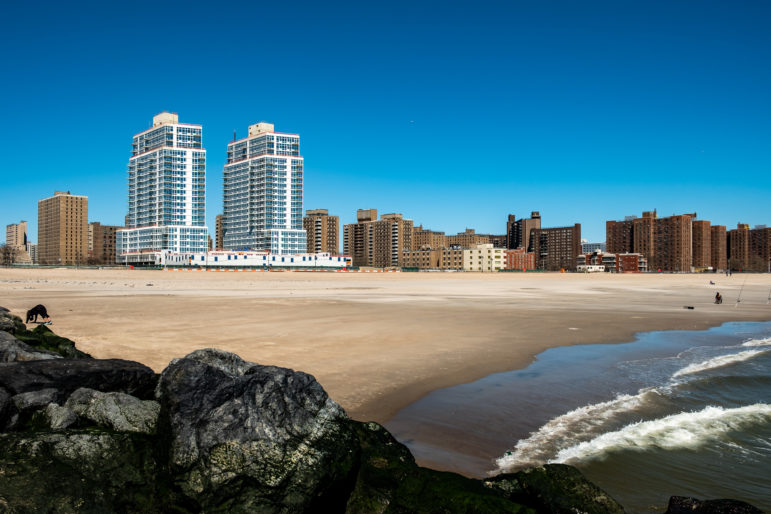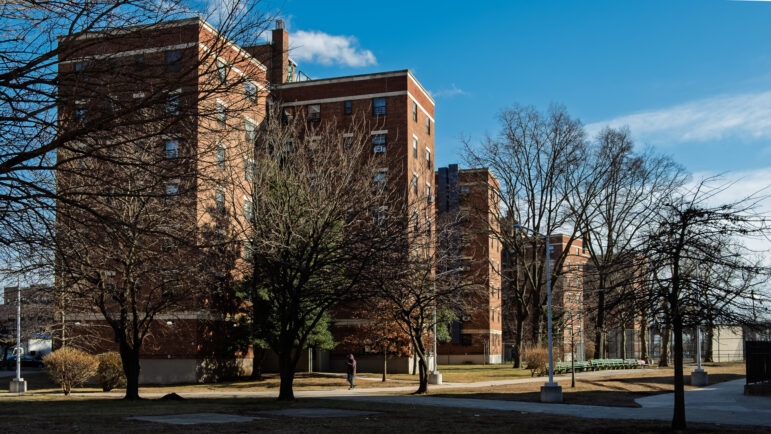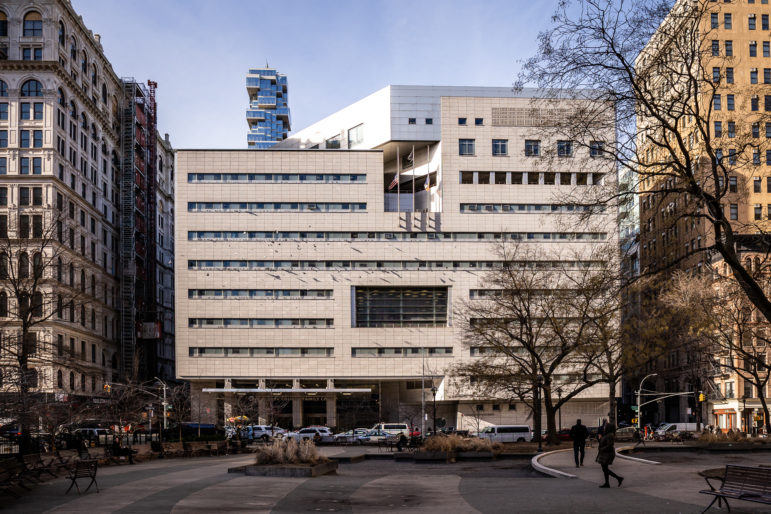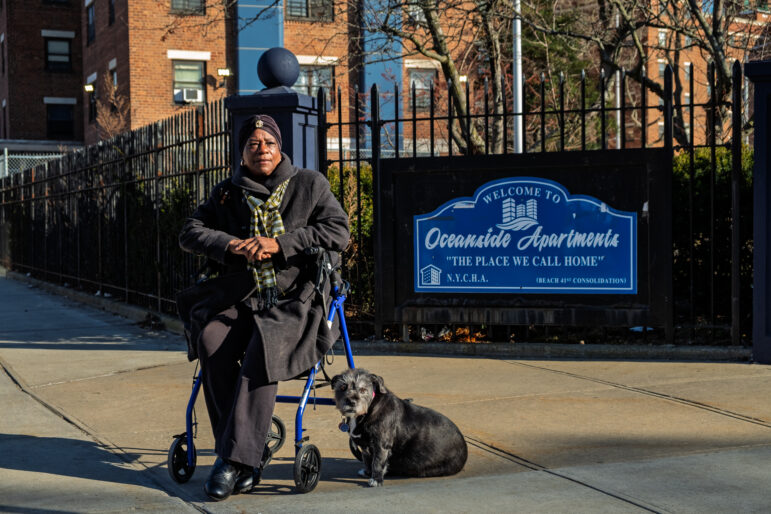In light of the grim findings, environmental leaders reiterated calls for the state to pass legislation to fine corporations that fail to reduce emissions. Locally, the City Council is considering a measure to restrict fossil fuel hookups in new construction sites and gut renovations.

Adi Talwar
The waterfront at Coney Island.On Monday, the United Nations’ Intergovernmental Panel on Climate Change released the first part of its report on the state of climate around the globe, and humans’ contribution to global warming.
The findings were grim, saying that Earth is likely to reach increased temperatures of 1.5 degrees Celsius over pre-industrial levels in the next 20 years. It further found that limiting the warming to only 1.5 degrees — the goal outlined in the Paris Agreement — would require “immediate, rapid and large-scale reductions in greenhouse gas emissions.”
Even a .5 increase beyond that, or 2 degrees Celsius above what average global temperatures were back in 1850-1900, would lead to more frequent intense heat waves, rainfall and flooding.
By the end of the century, 100-year storms could occur every year.
“With global warming, urban areas and cities will be affected by more frequent occurrence of extreme climate 33 events, such as heatwaves, with more hot days and warm nights as well as sea level rise and increases in 34 tropical cyclone storm surge and rainfall intensity that will increase the probability of coastal city flooding,” the report says.
New York’s Climate Leadership and Community Protection Act, passed by state lawmakers in 2019, aims to reduce greenhouse gas emissions 85 percent by 2050. It also created the Climate Action Council, a 22-person committee tasked with making recommendations on how the state can achieve those goals.
Some environmental advocates, though, believe the state’s climate law is not aggressive enough in holding major polluters accountable. The proposed Climate and Community Investment Act, by contrast, would impose fines on corporations who fail to reduce carbon dioxide emissions. It would then funnel a portion of those funds towards vulnerable communities most affected by climate change. The bill had not been voted on by the end of the legislative session in June.
On a local level, New York City Council is considering a measure that would restrict fossil fuel hookups in new construction sites and gut renovations.
The IPCC, made up of 195 countries, was created in 1988 “to provide policymakers with regular scientific assessments on climate change, its implications and potential future risks, as well as to put forward adaptation and mitigation options,” the panel’s website says. The 3,000-plus-word report is just one of three parts, with the other two to be released next year. It is the sixth assessment published by the IPCC since it was created. Its reports are meant to be policy-prescriptive, not policy-directed.
City Limits asked New York lawmakers and environmental advocacy groups how they think the results of the IPCC report will, or should, inform policy and reform in the city and beyond. Here’s what they told us:
- [The] IPCC report underlines a reality we have long known to be true: greenhouse gases from human activities are worsening the climate crisis and are projected to bring more heatwaves and flooding to our five boroughs. We are rapidly decarbonizing across all sectors including buildings, transportation, energy and waste to reach net zero emissions before it’s too late. Our climate policies have been and always will be informed by the latest science, including the new data and findings from the report.
— Ben Furnas, director of the Mayor’s Office of Climate and Sustainability - The Intergovernmental Panel on Climate Change’s report reinforces what we have known for some time –the climate crisis is here and we are witnessing its devastating effects across the world. New York recognizes the urgency in which we must act and guided by our nation-leading climate goals; we are accelerating our work in reducing harmful greenhouse gas emissions, creating good paying green jobs and building more resilient and healthy communities with a focus on those disproportionately affected by climate change.
— Doreen M. Harris, co-chair of the NY State Climate Action Council, president and CEO of New York State Energy Research and Development Authority - The IPCC report released today is chilling but we cannot afford despair. Every fraction of a degree counts. New York must do its part to dramatically reduce our greenhouse gas emissions and invest in a just transition for our state — that means making sure to fully implement and fully fund our climate mandates, with impacted communities and workers at the table. Our communities are worth saving.
— Maritza Silva-Farrell, executive director of ALIGN and NY Renews Steering Committee member - The latest IPCC report makes clear that for the future of humanity, inaction or half-hearted measures on climate will usher in a harrowing future. New York State has already lost lives due to the climate crisis, be it from superstorms Irene and Sandy, deadly heatwaves, or premature deaths due to asthma. Within the past two months alone, New York has seen two heat waves, darkened skies and dangerous air quality due to the wildfires devastating the western United States, and unprecedented and dangerous rainfall and flooding. It has been a stark reminder that New York’s adoption of the Climate Leadership and Community Protection Act is not enough. For New York to step up, the Climate Action Council, and especially the legislature, must pass and adopt bold policies that end New York’s reliance on fossil fuels.
— Liz Moran, environmental policy director for New York Public Interest Research Group - Communities of color and low-income communities have felt the impacts of the climate crisis for a long time. The latest IPCC report is telling us that we urgently need to take bold, immediate action to prevent the worst from happening. It is time to stop stalling good climate legislation that is going to get us off fossil fuels.
— Sonal Jessel, director of policy at WE ACT for Environmental Justice - There is no choice but to enact federal, state, and local policies that are in line with the Build Back Better climate recovery agenda to expand renewable energy, reduce our reliance on fossil fuels, prioritize environmental justice, create green, union jobs, and protect our natural areas. Chief among these priorities must be to reduce transportation emissions — the leading contributor to climate change — through policies like the Advanced Clean Trucks Rule and adopting a Clean Fuel Standard. New York must continue to lead by implementing the Climate Leadership and Community Protection Act. We look forward to working with our leaders to move these priorities forward quickly. The time to act is now.
— Julie Tighe, president of the New York League of Conservation Voters
Liz Donovan is a Report for America corps member.









